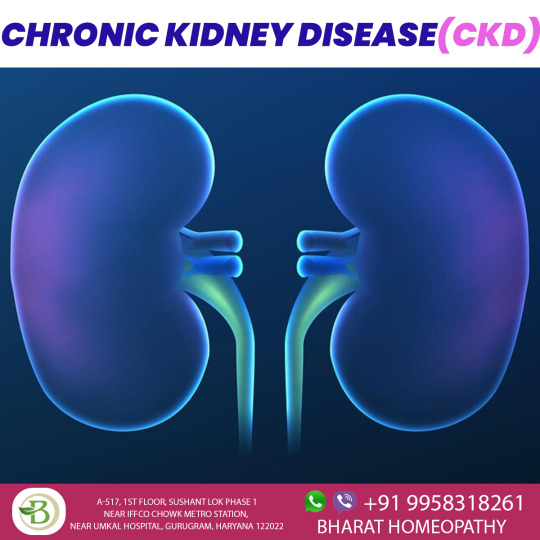#Creatinine level
Text
Understanding Kidney Function Test
A kidney function test is a blood or urine test that checks how well your kidneys are working. The kidneys remove waste products and excess fluid from the body.
#blood urea nitrogen (BUN) level#Creatinine level#Estimated Glomerular Filtration Rate (eGFR) Urinalysis
0 notes
Text



she finally stopped sleeping on my head and went back to sleeping in my arms, thank god
#the pupperino#i’m gonna be sad in the tags now.#god willing she should still have a few years but her kidney disease has progressed#she’s lost a lot of weight and her creatinine levels are a good bit higher than her last vet visit#it’s not her time yet luckily; again we should have a few more years with her#but i’m going to lose her sooner rather than later and i’m never going to be ready for that#raised this little brat from a kitten. i’ve had her since i was 14 and i’m in my 30’s. i can’t even think about it too hard
15 notes
·
View notes
Text
sitting here chugging water before i go get a blood test because i want to get a good grade in kidney function
2 notes
·
View notes
Text

The Significance of Comprehensive Health Checkups in Peritoneal Dialysis:
Regular full-body health evaluations are essential for maximizing outcomes and improving long-term survival among individuals undergoing peritoneal dialysis (PD). These assessments encompass a range of diagnostic techniques aimed at evaluating various health aspects, including kidney function, cardiovascular health, nutritional status, and metabolic indicators. Key elements of these evaluations for PD patients include:
1. Kidney Function Assessment: Routine monitoring of parameters such as serum creatinine, blood urea nitrogen (BUN), and estimated glomerular filtration rate (eGFR) aids in the early detection of declining kidney function. This information guides decisions on dialysis adequacy and modality selection.
2. Cardiovascular Screening: Thorough cardiovascular evaluations, including electrocardiography (ECG), echocardiography, and cardiac biomarker tests, provide insights into cardiac health and function. Early identification and management of cardiovascular risk factors like hypertension, dyslipidemia, and coronary artery disease are crucial for preventing cardiovascular complications and improving survival rates among PD patients.
3. Nutritional Status Assessment: Monitoring nutritional status through biochemical markers (e.g., serum albumin, prealbumin, and total protein), anthropometric measurements, and dietary assessments helps in early detection of malnutrition. This information guides interventions aimed at optimizing protein-energy status and preserving lean body mass in PD patients.
4. Metabolic Evaluation: Assessing metabolic parameters such as serum electrolytes, glucose, lipid profile, and markers of mineral and bone metabolism (e.g., calcium, phosphorus, and parathyroid hormone) assists in detecting and managing metabolic imbalances common in PD patients. Optimizing these parameters is crucial for reducing the risk of metabolic bone disease, cardiovascular calcification, and other metabolic complications associated with end-stage renal disease (ESRD).
There are several good hospitals in India that offer health checkup packages to choose from based on an individual's health status and requirements. A regular full body health checkup helps in increasing the survival rate of patients undergoing peritoneal dialysis.
#dialysis#peritoneal dialysis#full body health checkup#regular health checkups#health checkup packages#kidney failure#kidney function test#creatinine levels#BUN#kidney function#ECG#echocardiogram#nutritional status#lipid profile#blood glucose
0 notes
Text
Creatinine Levels Ayurveda Treatment | Sandhya Jani Devi Health Resort
Creatinine Levels Ayurveda Treatment – We explore fascinating topics related to health and wellness. One that many people have pondered: Does walking lower creatinine levels? Creatinine, a waste product produced by muscles during metabolism, is an important marker of kidney function.
Read More:- https://sandhyajanidevihealthresorts.com/creatinine-levels-ayurveda-treatment/
0 notes
Text
Recognising Creatinine Levels: An All-Inclusive Guide to Renal Health
Recognising Creatinine Levels: An All-Inclusive Guide to Renal Health
Kidneys are the vital organ that is responsible for removing extra fluids and waste from our blood, controlling blood pressure, and ensuring the balance of electrolytes. If kidney function is impaired, it causes kidney disease, which affects millions of people across the globe. Kidney diseases can be caused by a range of reasons, and diagnosis usually involves analyzing levels of creatinine in blood. The presence of high levels of creatinine may indicate kidney issues, and if not treated, kidney diseases can cause serious health problems.

Kidney Diagnosis and High Creatinine
The kidney disease diagnosis usually requires a series of tests, among which is assessing the level of creatinine in blood. Creatinine is a waste product created by muscles and then removed by kidneys. If the kidneys function optimally, they can maintain constant levels of creatinine. But, when kidney function is affected, and creatinine levels rise, it can be a sign of a decline. The presence of high levels of creatinine in the blood may indicate decreased kidney function, which could indicate an underlying kidney problem. The most common tests to determine levels of creatinine include urine and blood tests, with the estimated glomerular filter rate (eGFR) as an important indicator of kidney function.
High Creatinine Side Effects
The presence of high levels of creatinine is often an indication of kidney disease and may cause a wide range of uncomfortable and even life-threatening symptoms. Common side effects of high creatinine include:
The kidneys try to eliminate waste and keep electrolytes in balance; it could result in exhaustion and loss of energy.
Swelling: Kidneys play a vital role in maintaining our body's fluid equilibrium. If they're not functioning properly, extra fluid may build up and cause swelling, especially around the ankles, feet, and face.
Kidneys are a major factor in controlling blood pressure. If they're not functioning properly and their blood pressure rises, it can lead to and lead to hypertension.
Anemia: The kidney's function is impaired. It can affect the red blood cell production. This can result in anemia. This may cause weakness and fatigue.
Nausea and vomiting creatinine levels can cause the accumulation of waste materials in the bloodstream, which can cause sickness and nausea.
Itching: Kidney issues can cause the accumulation of substances that are not needed in the bloodstream, causing itching, skin itching, and rashes.
Natural Remedies for Kidney
Many people are looking into alternative treatments for kidney especially natural remedies for kidney disease. It's important to talk with a medical professional prior to commencing any kidney treatment. Natural remedies for kidney problems are:
Dietary changes: A diet containing less processed foods, salt, and saturated fats may help reduce the strain on kidneys. In addition, consuming more fresh vegetables and fruits can supply essential minerals and vitamins as well as support kidney health.
Hydration: Keeping hydrated is vital for good kidney health. A proper hydration regimen helps your kidneys eliminate waste and toxins. It is vital to regulate the amount of hydration you consume and to avoid excessive hydration since this can stress the kidneys.
Regular exercise: Keeping the right weight and completing regular physical exercise can aid in reducing blood pressure as well as improve kidney function in general.
Homeopathic Kidney Treatment
Kidney Treatment by homeopathy is a complete method of treatment that concentrates on enhancing the body's inherent healing capabilities. Homeopathic remedies are made by diluting natural substances. They are believed to work by stimulating the body's vital energy to restore equilibrium. Certain homeopathic remedies are utilized to help support kidney health and relieve symptoms of kidney disease. The remedies are tailored depending on the individual's symptoms and the constitution.
#best homeopathic medicine for creatinine#Kidney treatment by homeopathy#Low creatinine#normal creatinine levels#creatinine levels
0 notes
Text
Scientific study – Creatinine Levels Ayurveda Treatment
Creatinine Levels Ayurveda Treatment - We turn to scientific studies that have examined the possible relationship between running and a decrease in creatinine. Studies have shown that aerobic exercise, such as brisk walking, can increase blood flow, including to the kidneys.
0 notes
Text
Which vegetables reduce Creatinine Level?
Today we are going to talk about a very important topic that is not only relevant to people with chronic kidney disease but to everyone who is health-conscious.
Today we are going to talk about a very important topic that is not only relevant to people with chronic kidney disease but to everyone who is health-conscious. This is a topic that affects the very basic makeup of our body: our creatinine levels. And to make this topic more interesting, we are going to talk about vegetables that can reduce creatinine levels.
The vegetables we will be discussing…

View On WordPress
0 notes
Text

Lexington Renal Care
Provides comprehensive care for patients who are facing kidney disease, kidney transplant hospital in Lexington, KY transplants, dialysis, and hypertension.
Our patients are our highest priority. We understand that each
the patient is unique and individual needs will be considered when deciding on treatment options.
#Nephrolithiasis Pain Diagnosis Medicine#kidney problems detected blood test in lexington#Kidney Disease & Diagnosis in Lexington#Chronic Kidney Disease Tests in Lexington#Tests to Measure Kidney Function near me#kidney stones treatment Lexington care#Physicians for renal calculi Ttreatment in Lexington#Treatment for renal stone disease#Proteinuria Causes#Symptoms#Tests & Treatment in Lexington#High creatinine levels test in Lexington#kidney transplant hospital in Lexington#KY
0 notes
Text
#Kidney#creatinine#serum creatinine#normal creatinine levels#high creatinine level#what is creatinine?#creatinine means
0 notes
Text
here's a perfect example of how medical misogyny kills women
for anyone who can't watch the video, he's basically saying that high levels of creatinine can indicate kidney problems, which is why it's key feature for determining who needs a liver transplant first. the issue with this is that it doesn't account for creatinine-to-muscle ratios, meaning that men typically have artificially higher numbers because they typically have more muscle mass. while women's numbers may look low, they're actually high in relation to their muscle mass. basically, the system was designed based on male bodies
945 notes
·
View notes
Text
The kontext situation hits especially hard because the circumstances of his death so closely mirror my dad's. A few months ago, I was in New York, telling my friend Reese Piper about my dad's refusal to look after his health -- and how it killed him. It killed him the same way his own father's refusal to quit smoking killed him, and the way his grandpa's failure to reduce his alcoholism killed him.
And then a little later into the night, I shared with Reese my (at the time) steadfast denial that my high red blood cell count, high hemotocrit, high hemoglobin, and high creatinine were at all a problem, and my outrage that a doctor had told me I'd need to donate blood to deal with it.
And an awful little cheshire cat smile spread across Reese's face and she observed I was behaving just like any other man in my family.
All those same levels are high in my blood again. Again I am going to donate blood, not begrudgingly this time, but thankfully. I am more aware now what a gift that it is to have a medical condition that can be explained and easily treated. I even feel lucky that the treatment itself is a benefit to others. How convenient to have a problem that can be fixed for free and meets others' needs in the process. There is no need to run away from having a body with ailments and needs. Jesus, ignoring reality could kill me, like it killed kontext and my dad. And my grandpa. and great grandpa. And my mom's best friend. I am breaking the cycle.
102 notes
·
View notes
Text
Rheumatoid Arthritis:
Refer to rheumatologist.
●Nonpharmacologic measures – Nonpharmacologic measures, such as patient education, psychosocial interventions, and physical and occupational therapy, should be used in addition to drug therapy. Other medical interventions that are important in the comprehensive management of RA in all stages of disease include cardiovascular risk reduction and immunizations to decrease the risk of complications of drug therapies.
●Initiation of DMARD therapy soon after RA diagnosis – We suggest that all patients diagnosed with RA be started on disease-modifying antirheumatic drug (DMARD) therapy as soon as possible following diagnosis, rather than using antiinflammatory drugs alone, such as nonsteroidal antiinflammatory drugs (NSAIDs) and glucocorticoids (Grade 2C). Better outcomes are achieved by early compared with delayed intervention with DMARDs.
●Tight control of disease activity – Tight control treatment strategies to "treat to target" are associated with improved radiographic and functional outcomes compared with less aggressive approaches. Such strategies involve reassessment of disease activity on a regularly planned basis with the use of quantitative composite measures and adjustment of treatment regimens to quickly achieve and maintain control of disease activity if targeted treatment goals (remission or low disease activity) have not been achieved. (
●Pretreatment evaluation – Laboratory testing prior to therapy should include a complete blood count, erythrocyte sedimentation rate (ESR), C-reactive protein (CRP), aminotransferases, blood urea nitrogen, and creatinine. Patients receiving hydroxychloroquine (HCQ) should have a baseline ophthalmologic examination, and most patients who will receive a biologic agent or Janus kinase (JAK) inhibitor should be tested for latent tuberculosis (TB) infection. Screening for hepatitis B and C should be performed in all patients. Some patients may require antiviral treatment prior to initiating DMARD or immunosuppressive therapy, depending upon their level of risk for hepatitis B virus (HBV) reactivation.
●Adjunctive use of antiinflammatory agents – We use antiinflammatory drugs, including NSAIDs and glucocorticoids, as bridging therapies to rapidly achieve control of inflammation until DMARDs are sufficiently effective. Some patients may benefit from longer-term therapy with low doses of glucocorticoids.
●Drug therapy for flares – RA has natural exacerbations (also known as flares) and reductions of continuing disease activity. The severity of the flare and background drug therapy influence the choice of therapies. Patients who require multiple treatment courses with glucocorticoids for recurrent disease flares and whose medication doses have been increased to the maximally tolerated or acceptable level should be treated as patients with sustained disease activity. Such patients require modifications of their baseline drug therapies.
●Monitoring – The monitoring that we perform on a regular basis includes testing that is specific to evaluation of the safety of the drugs being; periodic assessments of disease activity with composite measures; monitoring for extraarticular manifestations of RA, other disease complications, and joint injury; and functional assessment.
●Other factors affecting target and choice of therapy – Other factors in RA management that may influence the target or choice of therapy include the disabilities or functional limitations important to a given patient, progressive joint injury, comorbidities, and the presence of adverse prognostic factors.
Osteoarthritis
General principles – General principles of osteoarthritis (OA) management include providing continuous care that is tailored to the patient according to individual needs, goals, and values and should be patient-centered. Treatment can be optimized by OA and self-management education, establishing treatment goals, and periodic monitoring.
●Monitoring and assessment – The management of OA should include a holistic assessment which considers the global needs of the patient. Patient preferences for certain types of therapies should also be assessed, as compliance and outcomes can be compromised if the care plan does not meet the patient's preferences and beliefs.
●Overview of management – The goals of OA management are to minimize pain, optimize function, and beneficially modify the process of joint damage. The primary aim of clinicians should include targeting modifiable risk factors. Due to the modest effects of the individual treatment options, a combination of therapeutic approaches is commonly used in practice and should prioritize therapies that are safer.
●Nonpharmacologic therapy – Nonpharmacologic interventions are the mainstay of OA management and should be tried first, followed by or in concert with medications to relieve pain when necessary. Nonpharmacologic therapies including weight management and exercises, braces and foot orthoses for patients suitable to these interventions, education, and use of assistive devices when required.
●Pharmacologic therapy – The main medications used in the pharmacologic management of OA include oral and topical nonsteroidal antiinflammatory drugs (NSAIDs). Other options include topical capsaicin, duloxetine, and intraarticular glucocorticoids. Our general approach to pharmacotherapy is described below.
•In patients with one or a few joints affected, especially knee and/or hand OA, we initiate pharmacotherapy with topical NSAIDs due to their similar efficacy compared with oral NSAIDs and their better safety profile.
•We use oral NSAIDs in patients with inadequate symptom relief with topical NSAIDs, patients with symptomatic OA in multiple joints, and/or patients with hip OA. We use the lowest dose required to control the patient's symptoms on an as-needed basis.
•We use duloxetine for patients with OA in multiple joints and concomitant comorbidities that may contraindicate oral NSAIDs and for patients with knee OA who have not responded satisfactorily to other interventions.
•Topical capsaicin is an option when one or a few joints are involved and other interventions are ineffective or contraindicated; however, its use may be limited by common local side effects.
•We do not routinely use intraarticular glucocorticoid injections due to the short duration of its effects (ie, approximately four weeks).
•We avoid prescribing opioids due to their overall small effects on pain over placebo and potential side effects (eg, nausea, dizziness, drowsiness), especially for long-term use and in the older adult population.
•We do not routinely recommend nutritional supplements such as glucosamine, chondroitin, vitamin D, diacerein, avocado soybean unsaponifiables (ASU), and fish oil due to a lack of clear evidence demonstrating a clinically important benefit from these supplements. Other nutritional supplements of interest that may have small effects on symptoms include curcumin (active ingredient of turmeric) and/or Boswellia serrata, but the data are limited.
●Role of surgery – Surgical treatment is dominated by total joint replacement, which is highly effective in patients with advanced knee and hip OA when conservative therapies have failed to provide adequate pain relief.
●Factors affecting response to therapy – The discordance of radiographic findings to pain supports the notion that the mechanisms of pain are complex and likely multifactorial. The placebo effect is also known to impact response to therapy.
●Prognosis – Although there is great variability among individuals and among different phenotypes of OA, courses of pain and physical functioning have been found to be predominantly stable, without substantial improvement or deterioration of symptoms over time.
4 notes
·
View notes
Text
hi guys! so i wanted to give you all this update as to why i have not been posting as much. for the past month i have been working at my job diligently, and at the same time ultimately concerned with my health and wellbeing. i know i made a post a while ago, saying that i was worried about my health and my kidney function, because i am a type 2 diabetic and kidney disease is common in my family. i have visited my new primary care doctor (for those who do not live in the US a primary care doctor is a healthcare provider that practices in general medicine and they are the individual i can go to to get check ups, vaccinations, referrals to specialists etc.) and a blood test as well as a urine test was done just last week.
the results of the blood test, my primary care doctor told me were fine. my urine test, to me told a different story, i noticed that my creatinine in my urine was low. it was at 17 when the reference range is 20 to 275 according to the lab test. anyways, i didn't ask them about my creatinine levels yet because i will be doing another visit with them at the end of this month to discuss over my results and what we will be doing as patient and doctor to make sure that i will be ok.
my blood sugar levels have been excellent. my respiratory is fine. my heart beat is normal. however i just have a really huge concern for my kidney function. until i get to see a kidney doctor who will do a test and the test informs me that i am well then i won't be worrying anymore. right now i am constantly stressing about my kidney function, i have been trying to distract myself with trying to finish writing requests, watching new anime shows, and going to the gym to put my mind off of it, but at the end of the night when my head hits my pillow it is all that i am thinking about.
i am writing this post to you guys, my followers and new followers, because i want for you all to know that i am still here. im still around, and i am trying my hardest to fulfill requests in my inbox and drafts. i am suffering right now from a really bad case of writer's block and stress. i think that is better to be transparent with you guys, and to let you all know what is going on with me.
i feel really bad that im not writing as often as i should be. i just hope, pray, and wish that this writer's block will go away and i will start writing again.
25 notes
·
View notes
Text
Creatinine Levels Ayurveda Treatment | Sandhya Jani Devi Health Resort
Creatinine Levels Ayurveda Treatment – We explore fascinating topics related to health and wellness. One that many people have pondered: Does walking lower creatinine levels? Creatinine, a waste product produced by muscles during metabolism, is an important marker of kidney function.
Read More:- https://sandhyajanidevihealthresorts.com/creatinine-levels-ayurveda-treatment/
0 notes
Text
Comprehending Chronic Kidney Disease (CKD)
The kidneys are vital organs for filtering waste and excess fluids from the blood. Kidney problems, whether acute kidney injury (AKI) or chronic kidney disease (CKD), can lead to a range of health issues, including swelling due to kidney failure. While conventional treatments are commonly prescribed, more individuals are exploring alternative approaches to kidney health, including homeopathy kidney treatment.

Understanding Kidney Function and Kidney Conditions
Before discussing homeopathic remedies, it is essential to understand the role of the kidneys and the distinction between acute and chronic kidney conditions.
Kidney Function:
The kidneys perform several crucial functions in the body, including the filtration of waste products, maintenance of fluid balance, regulation of electrolytes, and secretion of hormones that control blood pressure. When the kidneys are impaired, these functions can be compromised, leading to a buildup of waste in the body and other health complications.
Acute Kidney Injury (AKI):
AKI is a sudden loss of kidney function that typically occurs as a result of an injury, infection, or certain medications. It is characterized by a rapid decline in kidney function, leading to an accumulation of waste products in the bloodstream. Acute kidney injury
requires immediate medical attention and can sometimes be reversible with timely intervention.
Chronic Kidney Disease (CKD):
CKD, on the other hand, is a long-term condition where the kidneys gradually lose their ability to function over time. It progresses through stages, and in advanced cases, it can lead to kidney failure, also known as end-stage renal disease (ESRD). Chronic kidney disease
often requires lifelong management and may ultimately necessitate dialysis or kidney transplantation.
Swelling Due to Kidney Failure
One common and distressing symptom of kidney failure is swelling, medically referred to as edema. Edema occurs when excess fluid accumulates in the body, leading to swelling in various areas, including the hands, legs, face, and abdomen. This swelling due to kidney failure can be uncomfortable and impact a person's quality of life. Homeopathic remedies may offer a gentle approach to alleviate edema associated with kidney failure.
Homeopathy for Kidney Health
Homeopathy is a holistic system of medicine that focuses on treating the individual and addressing the underlying causes of health issues. Homeopathic medicine for kidney disease are made from highly diluted natural substances and aim to stimulate the body's innate healing abilities.
When it comes to kidney health, homeopathy can offer several potential benefits:-
Symptom Management:
Homeopathic remedies can help manage the symptoms associated with kidney conditions, including high creatinine levels, swelling, high blood pressure, and urinary issues. By addressing these symptoms, individuals may experience improved comfort and well-being.
Individualized Treatment:
Homeopathic treatment is highly individualized, with remedies chosen based on the specific symptoms, constitution, and emotional state of the patient. This personalized approach takes into account the unique aspects of each person's condition.
Minimal Side Effects:
Homeopathic remedies are highly diluted and generally well-tolerated, making them a gentle and safe option for individuals with kidney conditions. They can be used alongside conventional treatments if necessary.
Homeopathic Remedies for Kidney Conditions
Several homeopathic remedies may be recommended for individuals dealing with kidney issues, including those with swelling due to kidney failure. These remedies are chosen based on the patient's specific symptoms like creatinine and constitution.
It's important to consult a qualified homeopathic practitioner to assess your specific condition and prescribe the most suitable remedy.
Conclusion
Homeopathy offers a natural and holistic approach to managing kidney conditions, including acute kidney injury, chronic kidney disease, and the associated swelling due to kidney failure. While it may not replace conventional medical kidney treatments in all cases, it can be a valuable complementary therapy or an alternative for those seeking a gentler and less invasive approach to kidney care. If you or a loved one are dealing with kidney-related issues, consider consulting a qualified homeopath to explore the potential benefits of kidney treatment by homeopathy in your journey to better kidney health. Effective treatment requires individualized assessment and guidance from a healthcare professional experienced in homeopathy.
If you want to know for kidney treatment homeopathy, then you can visit my original blog. The link has been provided below:
https://bharathomeopathy.com/disease/kidney-failure-treatment
#chronic kidney disease (CKD)#Low creatinine#High creatinine levels#normal creatinine levels#creatinine levels#Kidney treatment by homeopathy#Kidney treatment
0 notes